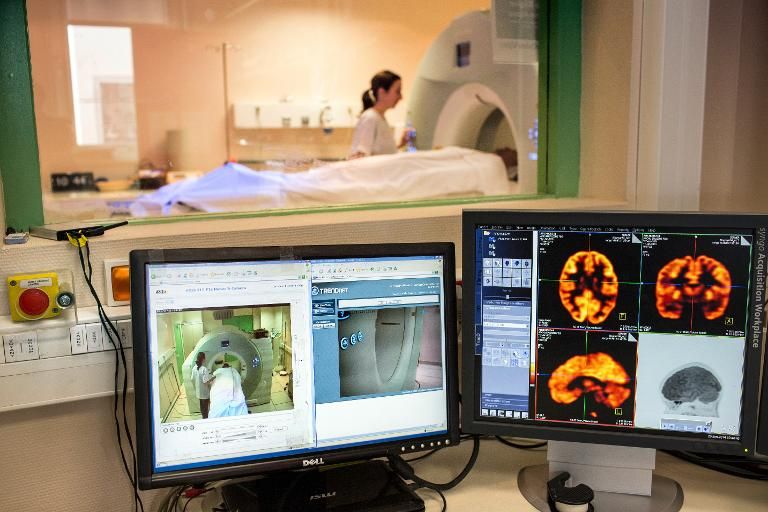Op-Ed: Cognitive flexibility — A new jingle for neuroscience, or what?

Neuroscience -Tomography. — © AFP
Cognitive flexibility has become a buzzphrase. It doesn’t deserve that status yet. It essentially means cognitive adaptability. The flexibility bit is about the process of adapting old thinking or rigid thinking to new situations and information.
Or to put it another way – Meh. So what? People have to adapt every second.
OK, people also vary greatly about how they manage new information and situations. Some are faster on the uptake. Some are reluctant or skeptical and don’t “embrace” (another rather unsanitary-sounding buzz phrase) anything without more data.
That’s hardly new. I often find that neuroscience sets the “normal” bar way too low and accepts it too readily. Why wouldn’t here-and-now level cognition respond to new information or to old information and behavior that doesn’t work?
The functional value of information is the bigger issue, not a sort of LEGO set of miscellaneous bricks. Then there’s the direct value of the information to subjects. It’s well known that people instantly discard information they don’t need or consider irrelevant. 95% of advertising may as well not exist, simply because it’s useless.
Inevitably, people prioritize useful information. That’s cognition on the job, sorting and indexing relevance. If cognitive flexibility were a primary driver, nobody would care about politicians’ usually incoherent and out-of-date babblings.
These people repeat themselves endlessly. They are the epitome of rigid thinking. They actually say very little. Yet, try to escape from a single word of politics for a second. It’s not easy.
To put it slightly differently – A point is made and hammered home. The actual behavior is very rigid. Any new points, if introduced, are rare enough to be considered news, ironically enough. How would you relate cognitive flexibility to politics?
Then there are the faithful old standbys of autism, ADHD, anorexia, and similar behaviorally linked conditions for cognition studies. In these cases, inflexibility of behavior is a real problem. A lot of behavior is habituated and probably acquired by experience.
Since autism became “a thing”, it’s been publicized to the level of a vast subject for scrutiny and very few if any practical outcomes worth mentioning. You have to question the logic of this almost evangelical hysteria.
You particularly have to question it when “normal” means barely able to comprehend anything much about grade school level cognition. If you want to split hairs, they’re arguably worse than supposedly “autistic” people in terms of baseline communication. They don’t get any of it.
The constant credence given to such vast amounts of absurd disinformation seems to indicate that basic cognition in huge numbers of supposedly normal people isn’t that great. How flexible and adaptable are you expecting people to become?
If you’re talking about perspective, you’re on very safe ground. Very rarely if ever will you see any alternate perspectives. “This is good, this is bad”, and that’s it. The cognitive flexibility idea does or does not allow for independent evaluation, yes, or no?
In a hyper-polarized environment, how useful or likely is cognitive flexibility?
(OK, that was a very much too easy shot. The point is that flexibility may not even be possible in some scenarios, particularly business and social scenarios.)
Cognitive flexibility is now being highly valued as an entrepreneurial skill set, and an asset in creativity. My comment would be “Try avoiding it”.
If you do any sort of creative work, you’ll know that you’re inundated with new perspectives on your own work all the time. How do beagles fly Sopwith Camels? Why do mice captain steamboats and why does Scooby Doo outlive most other media products?
Cognition can write its own scripts. Sometimes it has to do so.
Now tell me this, neuroscience – Why do you think cognition is purpose-built to be flexible anyway?
A schematic:
Input – Whatever, in any volume and of any quality.
Process – Try to make sense of it.
Subroutine – Remove the garbage from the input.
Result – Something that makes sense and is actually useful.
Output – Functional response(s).
I don’t buy making a necessary process into a unicorn. You can probably train people to be far more receptive to flexible use of information. God knows, they get little enough practice.
…But this is a critical natural process. Leave it alone. Study, sure, and help people with problems, but don’t turn it into a day job. There are too many tangents. Cognition makes its own rules.
_____________________________________________________________
Disclaimer
The opinions expressed in this Op-Ed are those of the author. They do not purport to reflect the opinions or views of the Digital Journal or its members.
Op-Ed: Cognitive flexibility — A new jingle for neuroscience, or what?
#OpEd #Cognitive #flexibility #jingle #neuroscience





